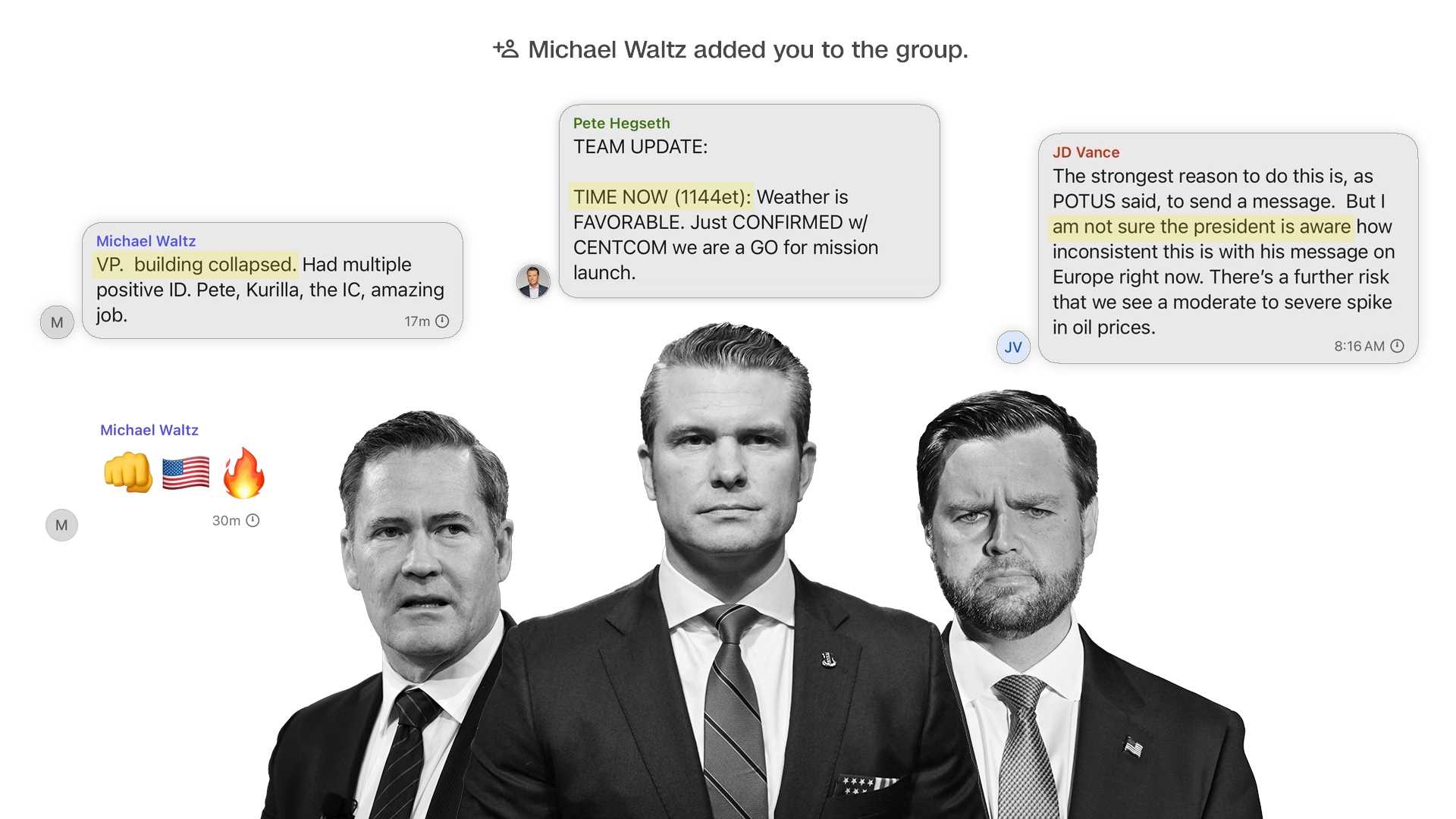Politics
Revealing Signal Chat Exposes Trump Officials’ Yemen Strike Discussions

WASHINGTON, D.C. — Newly released excerpts from a Signal chat among top officials in the Trump administration shed light on discussions surrounding potential U.S. strikes against Houthi targets in Yemen. The chat, initially created by National Security Adviser Michael Waltz, unexpectedly included Jeffrey Goldberg, the editor-in-chief of The Atlantic, who claimed officials did not disclose any classified information during the discussions.
The conversations, made public on Wednesday, sparked intense backlash from Democrats, heightening calls for Pete Hegseth, one of the participants, to resign. Critics allege Hegseth acted irresponsibly, potentially jeopardizing the safety of American troops involved in the region.
Among the participants in the chat were high-ranking officials who deliberated the complexities of conducting military action in a volatile area. Specific considerations included the implications for diplomatic relations with other Middle Eastern nations and the humanitarian impact on civilians caught in the crossfire.
According to sources familiar with the chat’s context, officials expressed concerns about the legal ramifications of strikes against Houthi faction leaders, especially regarding the justifications required under international law. The dialogues emphasized a critical need for strategic precision in the face of escalating tensions in the region.
The unauthorized inclusion of Goldberg in the conversation raises ethical questions regarding confidentiality and the accessibility of sensitive military discussions. Goldberg’s presence has triggered conversations about transparency in government communications and the potential ramifications of leaking such information.
In response to the revelations, Democratic leaders have voiced their discontent, stating Hegseth’s involvement could undermine the integrity of military operations and place service members at risk. They insist on accountability, with House Speaker Nancy Pelosi demanding a thorough investigation into the matter.
Meanwhile, the White House has not officially commented on the discussions nor addressed the growing outcry for Hegseth’s resignation. Analysts suggest that the situation may lead to renewed scrutiny of the administration’s handling of foreign policy matters, particularly in conflict-ridden areas like Yemen.
The latest development raises important questions about the balance between national security and transparency, along with discussions on the ethical responsibilities of officials involved in military strategy.
Correction: An earlier version of a graphic in this article inaccurately reported the timestamp of a March 14 message from Pete Hegseth. The correct timestamp was 9:46 a.m., not 9:46 p.m.












